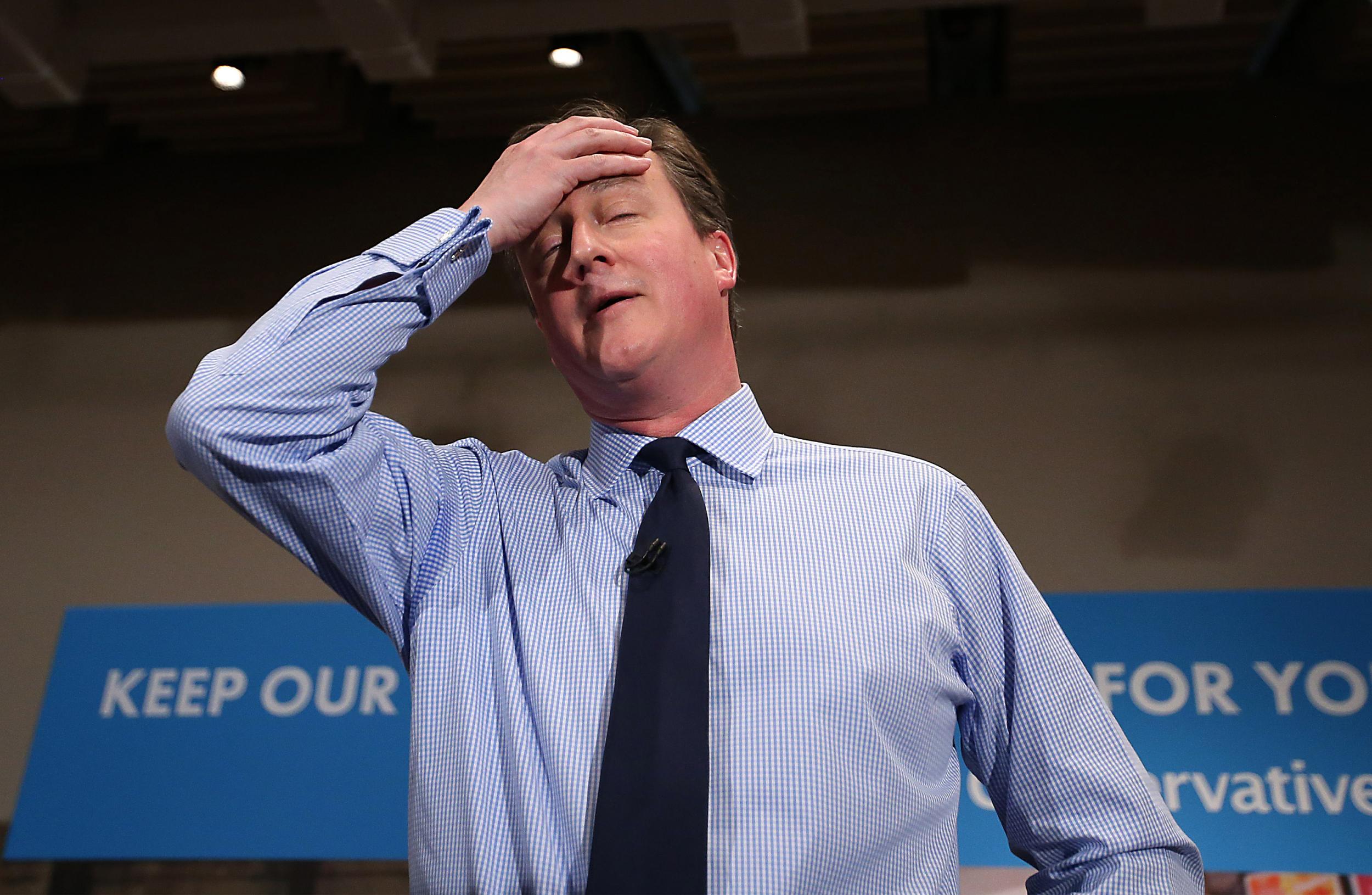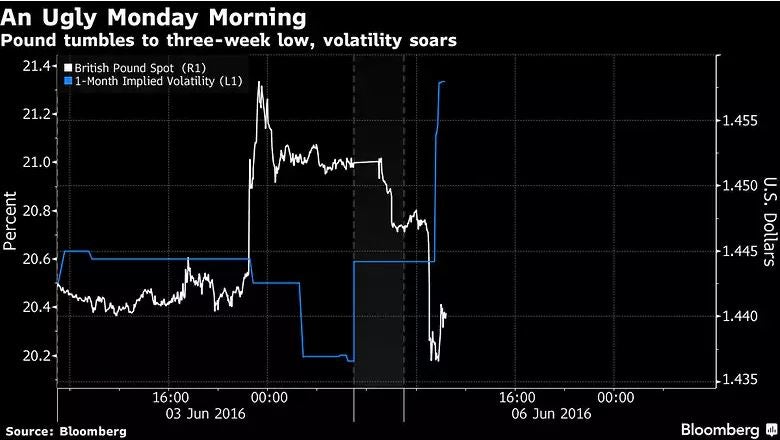Pound plummets against dollar as polls suggest Brexit and Cameron warns of economic 'bomb'
'Add those things together – the shock impact, the uncertainty impact, the trade impact – and you put a bomb under our economy,' says PM

Your support helps us to tell the story
From reproductive rights to climate change to Big Tech, The Independent is on the ground when the story is developing. Whether it's investigating the financials of Elon Musk's pro-Trump PAC or producing our latest documentary, 'The A Word', which shines a light on the American women fighting for reproductive rights, we know how important it is to parse out the facts from the messaging.
At such a critical moment in US history, we need reporters on the ground. Your donation allows us to keep sending journalists to speak to both sides of the story.
The Independent is trusted by Americans across the entire political spectrum. And unlike many other quality news outlets, we choose not to lock Americans out of our reporting and analysis with paywalls. We believe quality journalism should be available to everyone, paid for by those who can afford it.
Your support makes all the difference.The pound has fell sharply against the dollar as financial markets reacted badly to new polls suggesting momentum is moving towards Britain’s exit from the European Union.
David Cameron used a campaign event this morning to warn that Brexit would detonate a “bomb” under the British economy from which it would take years to recover.
The Prime Minister's remarks appeared to be borne out by market reaction to two polls suggesting that more voters are now inclined to leave the EU than stay in.
Sterling lost as much as 1.1 per cent against the US dollar, falling to a three-week low, even in the face of weak economic data in the US.
One-month sterling volatility, which gives a measure of how much the pound could lose or gain in value against other currencies, jumped to 21.9 – the highest since the depths of the financial crisis in February 2009 (as shown by the blue line in the chart below).

“Were Brexit to occur we see a real risk of a sterling crisis against the backdrop of twin fiscal and current account deficits,” Mark Dowding, co-head of investment grade debt at BlueBay Asset Management told the Financial Times.
Appearing with Harriet Harman, Natalie Bennett and Tim Farron Mr Cameron said leave campaigners were prepared to make things up to persuade people to opt for Brexit.
He said there would be a recession, years of uncertainty and weaker trade in the event of Brexit, and the leave campaign had failed to set out how it would deal with those consequences.
“Add those things together – the shock impact, the uncertainty impact, the trade impact – and you put a bomb under our economy,” he said. “And the worst thing is we’d have lit the fuse ourselves.”
“Don’t throw away your job, don’t throw away your children’s futures, don’t throw away the strength and future of our country on the basis of misleading statistics peddled by a campaign determined to say anything and indeed everything to get the outcome they want,” he said. “That is what is happening. Do not be misled. Do not let them persuade you of this reckless course for our country.”
Cameron said the event in London was an “unprecedented show of cross-party unity”, and branded the out campaign “undemocratic and reckless” because it had not set out what a vote to leave would mean.
YouGov asked people to judge whether they thought the UK should leave the EU if they were £100 a year worse off afterwards.
The majority (44 per cent) of people said they would vote to leave, while 42 per cent said they would remain.
Connor Campbell, Spreadex financial analyst, said that the pound was continuing to feel the ragged to-ing and fro-ing of the duelling EU referendum campaigns.

The EU referendum debate has so far been characterised by bias, distortion and exaggeration. So until 23 June we we’re running a series of question and answer features that explain the most important issues in a detailed, dispassionate way to help inform your decision.
What is Brexit and why are we having an EU referendum?
Will we gain or lose rights by leaving the European Union?
What will happen to immigration if there's Brexit?
Will Brexit make the UK more or less safe?
Will the UK benefit from being released from EU laws?
Will leaving the EU save taxpayers money and mean more money for the NHS?
What will Brexit do to UK trade?
How Brexit will affect British tourism
What will Brexit mean for British tourists booking holidays in the EU?
Will Brexit help or damage the environment?
Join our commenting forum
Join thought-provoking conversations, follow other Independent readers and see their replies
Comments